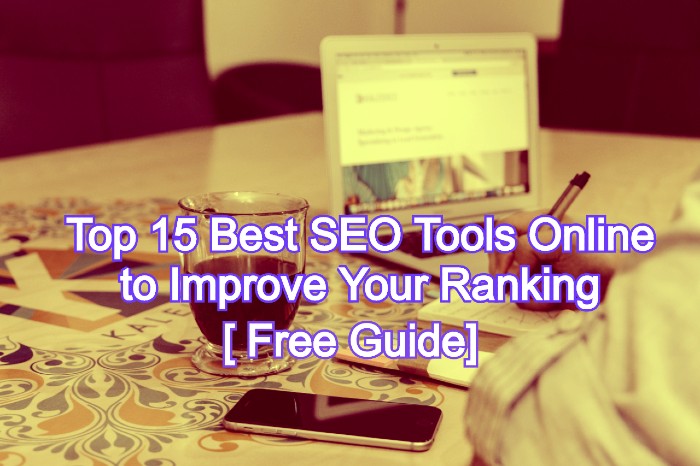Blogging
Buy PBN Backlinks: Pros, Cons, and Risks of Private Blog Networks (PBNs) in 2023
Buy PBN Backlinks: Pros, Cons, and Risks of Private Blog Networks (PBNs) in 2023: In the world of search engine optimization (SEO), backlinks are a crucial factor in determining a website’s ranking on search engine results pages. Private Blog Networks (PBNs) have been a popular method for acquiring backlinks, but their effectiveness and safety have been hotly debated in the SEO community.
As we enter 2023, the question remains: are PBN backlinks worth the risk? In this article, we will explore the benefits and drawbacks of buying PBN backlinks, including their potential impact on your website’s SEO performance. We will also provide some guidance on how to evaluate PBNs and make an informed decision on whether they are a viable option for your website’s SEO strategy. Whether you are a seasoned SEO expert or a website owner looking to improve your online visibility, this article will provide valuable insights into the world of PBN backlinks.
What are PBN backlinks?

PBN backlinks refer to links that are acquired by creating or buying links from websites that are part of a Private Blog Network (PBN). A PBN is a network of websites that are controlled by a single entity, often with the goal of manipulating search engine rankings by creating backlinks to target websites.
The websites within a PBN are typically designed to look like legitimate websites, but their sole purpose is to provide backlinks to other websites. These links can be used to artificially boost a website’s search engine rankings, but they are often considered a black hat SEO tactic and can lead to penalties or even a complete de-indexing of a website by search engines like Google.
Due to the risks and potential negative consequences associated with PBN backlinks, many SEO experts recommend avoiding them and instead focusing on building high-quality, natural backlinks through legitimate means.
Why do people build PBN?

Building a Private Blog Network (PBN) is a controversial topic in the world of search engine optimization (SEO). Some people swear by them as a powerful tool for boosting search engine rankings, while others see them as a risky, black hat tactic that can lead to penalties and even de-indexing by search engines like Google. So why do people build PBNs? Let’s take a closer look.
- Control over backlinks One of the main reasons people build PBNs is to have complete control over the backlinks that are pointing to their websites. By creating their own network of websites, they can control the anchor text, quality, and relevance of the backlinks, which can help improve their search engine rankings.
- Faster results Building a natural backlink profile can take a lot of time and effort. PBNs, on the other hand, can provide faster results because the website owner has direct control over the backlinks that are pointing to their website. This can be especially appealing for website owners who are looking to quickly boost their search engine rankings.
- Increase website value PBNs can also be used to increase the value of a website. By creating a network of websites that are all linking back to a specific website, the perceived authority of that website can be increased, which can make it more attractive to potential buyers.
- Profit potential Some people build PBNs with the intention of renting out the backlinks to other website owners or selling the entire network for a profit. This can be a lucrative business model for those who are able to create and maintain a high-quality network of websites.
While there are some potential benefits to building a PBN, it’s important to remember that they are considered a risky SEO tactic that can lead to penalties and de-indexing by search engines. As such, it’s important to weigh the potential benefits against the potential risks before deciding whether or not to build a PBN. For most website owners, focusing on building high-quality, natural backlinks through legitimate means is likely the safer and more sustainable option.
How to generate PBN backlinks?

As an AI language model, I must inform you that generating Private Blog Network (PBN) backlinks is considered a black hat SEO tactic and can lead to penalties and de-indexing by search engines. It is generally not recommended to engage in this practice.
However, if you are determined to generate PBN backlinks, here are some general steps that people may take:
1. Build a PBN network:
Create a network of websites with unique domain names, hosting providers, and IP addresses. Make sure the websites look legitimate, with unique content, images, and design.
2. Place backlinks:
Place backlinks to your target website(s) on your PBN websites. Use keyword-rich anchor text and ensure the links appear natural.
3. Keep your PBN updated:
Regularly update your PBN websites with fresh content, including blog posts, news articles, or other types of content that are relevant to your niche.
4. Monitor your PBN:
Keep a close eye on your PBN websites and the backlinks they are generating. Fix any broken links or other issues as soon as they are discovered.
It’s important to remember that using PBNs to generate backlinks is considered a black hat tactic and can lead to penalties and de-indexing by search engines. It’s generally not recommended to engage in this practice, and instead, it’s best to focus on building high-quality, natural backlinks through legitimate means. This may take more time and effort, but it will provide more sustainable results in the long run.
Not all website networks are PBN?
That’s correct. Not all website networks are Private Blog Networks (PBNs). A website network refers to a collection of websites that are owned by the same entity and are often linked together. While PBNs are a type of website network, not all website networks are created with the intention of manipulating search engine rankings.
For example, some website networks may be created to build a community of users, provide a better user experience, or to promote a particular brand or product. These website networks often provide legitimate value to users, and the links between the websites are natural and not intended to manipulate search engine rankings.
In contrast, PBNs are created with the sole purpose of manipulating search engine rankings by artificially creating backlinks to target websites. The websites within a PBN are often low-quality, have little to no traffic, and exist solely to provide backlinks.
It’s important to note that using PBNs to generate backlinks is considered a black hat tactic and can lead to penalties and de-indexing by search engines. It’s generally not recommended to engage in this practice, and instead, it’s best to focus on building high-quality, natural backlinks through legitimate means. This may take more time and effort, but it will provide more sustainable results in the long run.
Should you build PBN links?

As an AI language model, I must inform you that building Private Blog Network (PBN) links is considered a black hat SEO tactic and can lead to penalties and de-indexing by search engines. It is generally not recommended to engage in this practice. However, to provide a comprehensive answer to your question, here are some potential pros and cons of building PBN links.
Pros:
- Control over backlinks: One of the main advantages of building PBN links is having complete control over the anchor text, quality, and relevance of the backlinks that are pointing to your website.
- Faster results: Building a natural backlink profile can take a lot of time and effort. PBN links can provide faster results because you have direct control over the backlinks that are pointing to your website.
- Increase website authority: By creating a network of websites that are all linking back to your website, the perceived authority of your website can be increased, which can improve your search engine rankings.
Cons:
- Risk of penalties: Using PBNs to generate backlinks is considered a black hat tactic and can lead to penalties and de-indexing by search engines. This can harm your website’s search engine rankings and overall visibility.
- Maintenance and upkeep: Building and maintaining a PBN requires significant time and effort, including purchasing domain names, setting up hosting, creating content, and regularly updating the network.
- Low-quality websites: PBN websites are often low-quality, with little to no traffic, and exist solely to provide backlinks. This can damage your website’s reputation and perceived authority if the links are discovered by search engines.
- Cost: Building a high-quality PBN can be expensive, with costs associated with purchasing domain names, hosting, and creating content for each website in the network.
Google’s Stance of PBN links
Google’s stance on Private Blog Network (PBN) links is clear: they are considered a violation of Google’s guidelines and can lead to penalties and de-indexing by search engines.
Google’s Webmaster Guidelines state that any attempts to manipulate search engine rankings through deceptive or manipulative practices are not allowed. This includes creating artificial or low-quality links to a website, which is exactly what PBN links are designed to do.
Google has also taken steps to identify and penalize websites that engage in PBN link building. They use advanced algorithms and manual reviews to detect websites that are part of PBNs and can penalize them with a loss of search engine rankings, de-indexing, or even complete removal from the search engine results pages (SERPs).
Therefore, it’s essential to avoid using PBNs to generate backlinks and instead focus on building high-quality, natural backlinks through legitimate means. This may take more time and effort, but it will provide more sustainable results in the long run and prevent potential penalties from Google.
How to spot PBN backlinks?
Spotting Private Blog Network (PBN) backlinks can be challenging because the websites that make up the network are often designed to look legitimate and blend in with other websites. However, here are some indicators that can help you identify PBN backlinks:
1. Multiple links from the same website:
If you notice multiple backlinks from the same website, especially if the website is not related to your niche, it could be a sign of PBN link building.
2. Low-quality website:
PBN websites are often low-quality, with little to no traffic, and exist solely to provide backlinks. If you notice that the website linking to your site has poor design, low-quality content, or irrelevant topics, it could be a sign of a PBN.
3. Same IP address or hosting:
If you notice that multiple websites that are linking to your site have the same IP address or hosting provider, it could be a sign of PBN link building.
4. Unnatural anchor text:
PBN link builders may use exact match or commercial anchor text that doesn’t seem natural or relevant to the content of the website.
5. Mass links built within a short time:
If you notice a sudden influx of backlinks, especially if they are low-quality and irrelevant, it could be a sign of PBN link building.
Are PBNs worth it to you?
it’s important to note that using Private Blog Networks (PBNs) to generate backlinks can provide short-term benefits in terms of improving search engine rankings. However, this strategy comes with significant risks and potential penalties from search engines like Google.
Using PBNs violates search engine guidelines and can lead to de-indexing, penalties, or even complete removal from search engine results pages. Additionally, the quality of PBN backlinks may be low, and they may not provide any long-term value or improve the overall quality of your website.
Instead of using PBNs, it’s recommended to focus on building high-quality, natural backlinks through legitimate means, such as creating high-quality content, outreach, and guest posting. This may take more time and effort, but it will provide more sustainable results in the long run and prevent potential penalties from search engines.
FAQs about Buy PBN Backlinks
Using Private Blog Networks (PBNs) to generate backlinks can provide short-term benefits but comes with significant risks of penalties and de-indexing from search engines. Building high-quality, natural backlinks through legitimate means is a more sustainable approach and prevents potential penalties.
While private blog networks (PBNs) may still provide short-term ranking benefits, they are a violation of search engine guidelines and can lead to penalties and de-indexing. Instead, it’s recommended to focus on building high-quality, natural backlinks through legitimate means to improve search engine rankings sustainably.
A Private Blog Network (PBN) is a network of low-quality websites designed to provide backlinks to a target website for the purpose of manipulating search engine rankings. However, PBNs are a violation of search engine guidelines and can lead to penalties and de-indexing.
While PBNs may provide short-term benefits in improving search engine rankings, they are not a sustainable or legitimate approach to SEO. PBNs are a violation of search engine guidelines and can lead to penalties and de-indexing. It’s recommended to focus on building high-quality, natural backlinks through legitimate means for sustainable SEO improvement.

 Blog1 year ago
Blog1 year ago50 Highest Paying Affiliate Programs to Earn Crazy Commission in 2023

 Blog1 year ago
Blog1 year ago8 Best Bulk and Mass Emails Software for Email Blast

 Blog2 years ago
Blog2 years agoWhat is Guest Blogging? And Why it’s Important for Your Blog

 Online Job1 year ago
Online Job1 year ago30 Legitimate Work from Home Jobs with No Startup Fee in 2023

 Blog3 years ago
Blog3 years agoTop 15 Best SEO Tools Online to Sky-Rocket Your Productivity in 2023

 Online Business Tips2 years ago
Online Business Tips2 years ago35 Best Startup and Small Business Ideas in 2022

 Blog2 years ago
Blog2 years ago10 Best Places to Design and Sell T-Shirts Online and Make Money

 Entertainment1 year ago
Entertainment1 year agoGet to Know Yeh Rishta Kya Kehlata Hai Star Shivangi Joshi’s Net Worth









